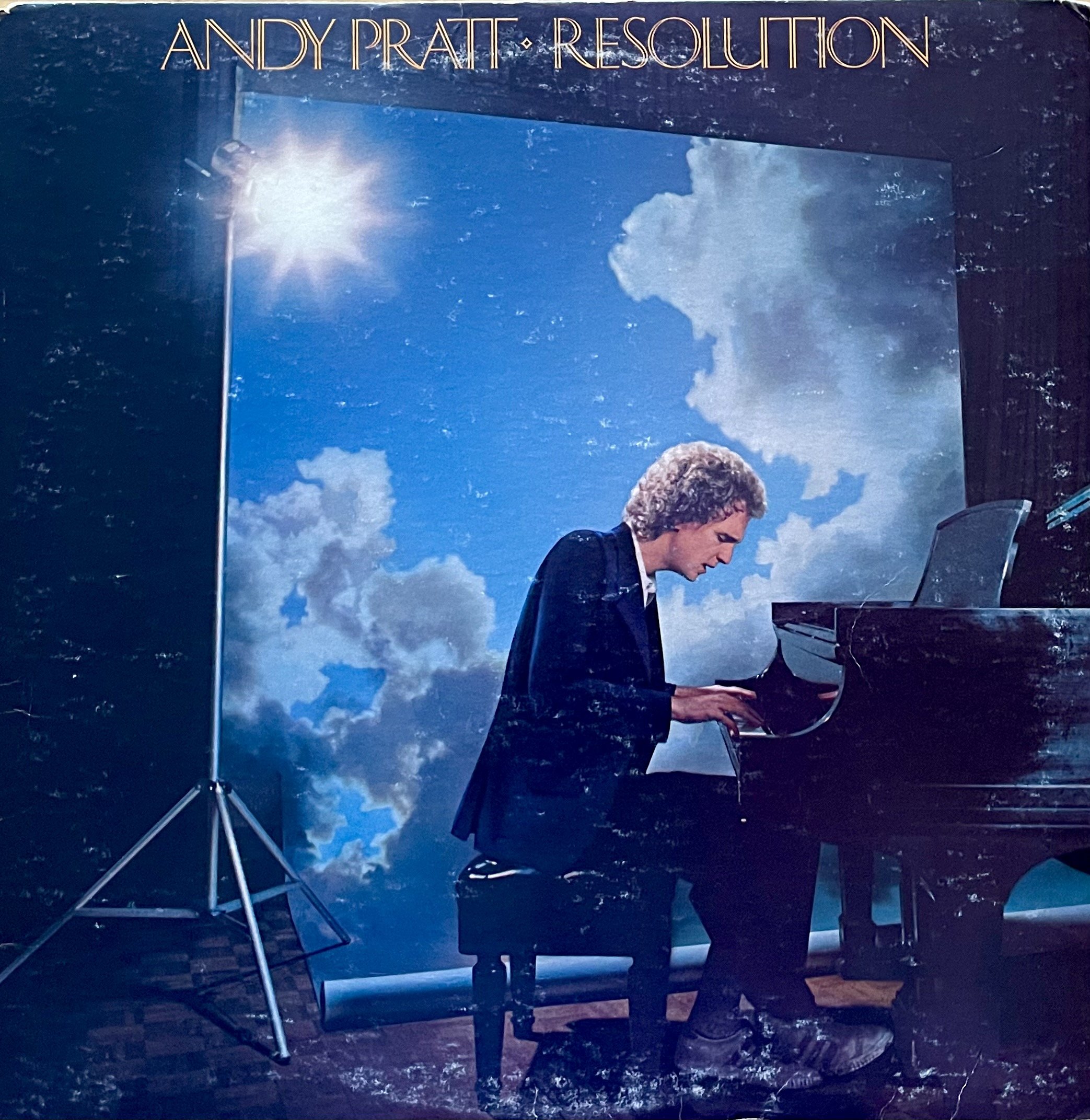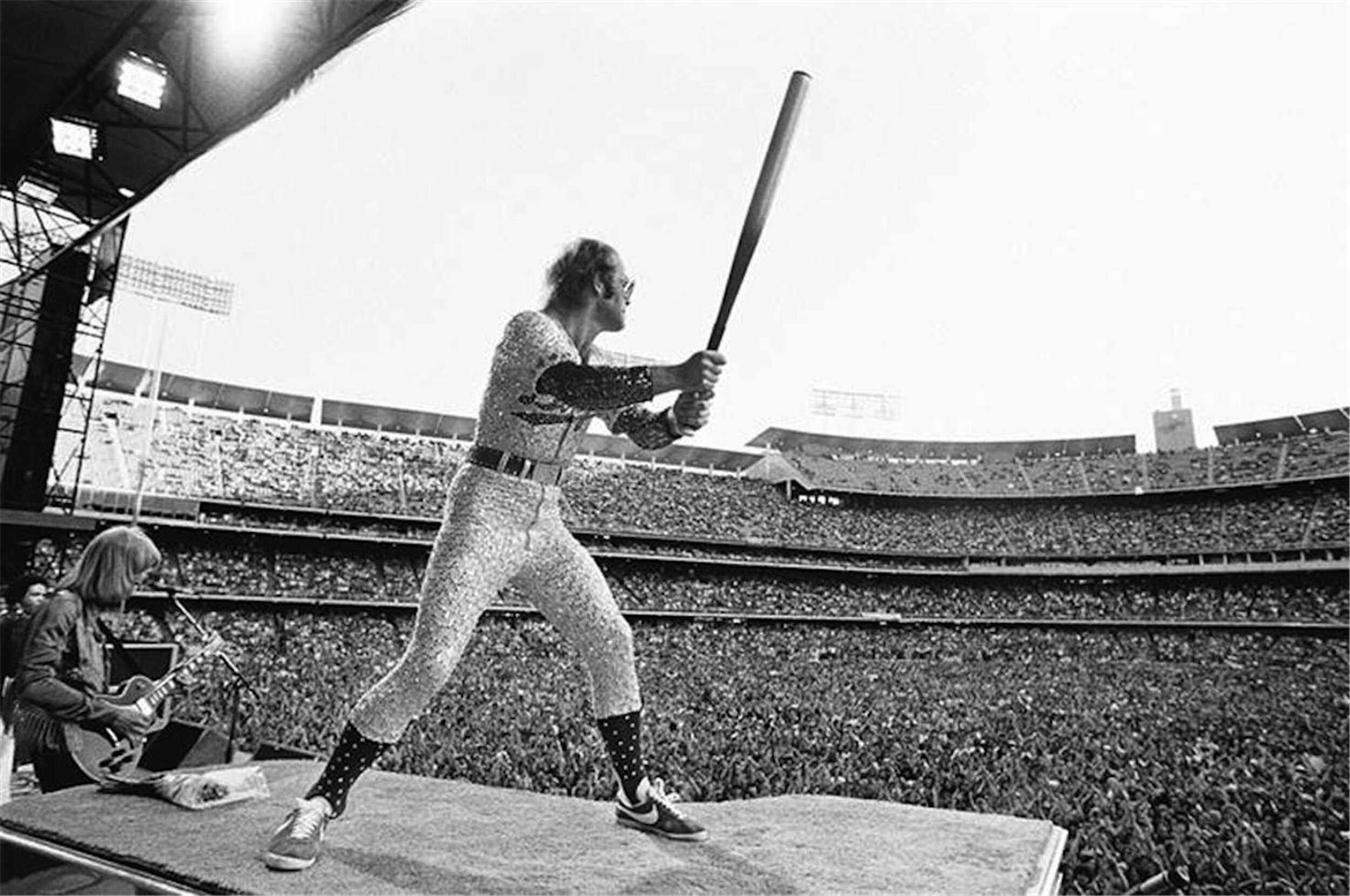

Andy Pratt 3rd album Resolution album cover
When Andy Pratt's self-titled album hit the shelves in 1973 at the Memphis record store where I worked, I was immediately taken by his idiosyncratic songs, which opened a door into a disarming vulnerability. From the expansive opening track "Avenging Annie" to the spooky closer "Deer Song," Andy Pratt's voice goes from intimate and delicate to raging overload, sometimes expressed in pinched falsetto and guttural sounds, as evidenced by two tracks, the crazed "Inside Me Wants Out" and the goofy ode to self-doubt, "It's All Behind You." It's playful, and it's nuts. Pratt's voice in the dynamic "Summer Summer" goes from guarded, childlike wondering to an utterly alive seizing of a moment.
Most artists' need to be loved is so profound that they create self-controlling filters to expose too much of themselves and risk rejection. With Pratt, there's no halfway. He's all in. Quirky is a work that gets overused, but in this case, it is apt. You will like this or know it isn't your flavor very quickly.
I soon discovered Pratt had released a previous album, Records Are Like Life, which knocked me out, too. It offered playfully imaginative musicianship and sweet charm but without the dark. "Wet Daddy" alone is worth the price of admission, but "Bella Bella" and "Mindy" are other highlights.
I wasn't prepared for Pratt's next chapter, which came in the form of his brilliant 1976 album, Resolution. Like the title, this was a gorgeous collection of songs that aimed high and hit the lofty marks more often than not.
The title track, which opens Resolution, is a towering statement of purpose lifted by inspired muscular melodic bass playing (possibly Tony Levin) that, along with Pratt's arpeggiated piano parts, ground the song as soaring string arrangements and choral vocals underscore every committed heartfelt lyric. Even after all these years, it is a stunning track to behold. It got me through a lot of searching times.
"Can't Stop My Love For You" is heart-wrenching, laying out all the things Pratt wished he could've said to his late father, and "Everything Falls Into Place (Lillian's Song)" feels like a journey through shame to a kind of healing. The rockers on Resolution, "Karen's Song," and "Treasure That Canary" balance power and polish. Not enough praise can be offered for Mark Doyle's tight melodic guitar playing that attacks power chords with relish and lofty harmonic counterpoints that weave in and out of Pratt's emotive singing.
Andy Pratt is an acquired taste, for sure. Still, a big part of what makes Resolution uniqueness work is producer Arif Mardin, whose credits include Aretha Franklin, John Prine, Dusty Springfield, Roberta Flack, Bee Gees, Willie Nelson, Chaka Khan, and many more. Mardin was responsible for wrangling Pratt's vulnerabilities into a more elegant presentation that (except for moments where I wish his voice was up a little more in the mix) is a perfect match to elevate this inspired material. The style of Resolution is totally anchored in the sound of grand 70's pop production, but if you like that sound, this album has the magic. It begs to be cranked up, which is how I usually listen to Resolution.
After the critical success of Resolution, Andy Pratt's next album, Shiver In The Night, had special moments but felt like a diluted version of its predecessor. Pratt's personal transformation into a born-again Christian led to the release of Motives in 1979. Produced by Eddy Offord (known for his work with Yes and Emerson, Lake and Palmer), Motives is Pratt's equivalent of Dylan's Slow Train Coming, not in musical style, but in its message. Unlike Slow Train Coming, Motives has a touch of humor, and the emotionally raw songs, like the soulful "Cross On A Hill" and poignant "Close My Eyes When I Die," showcase the best of Andy Pratt.
My connection with Andy Pratt and his music (especially Resolution) is profound. Every time I revisit his songs, I'm transported to a place where his creative world and mine meet, and it makes me thankful I discovered him decades ago.




























